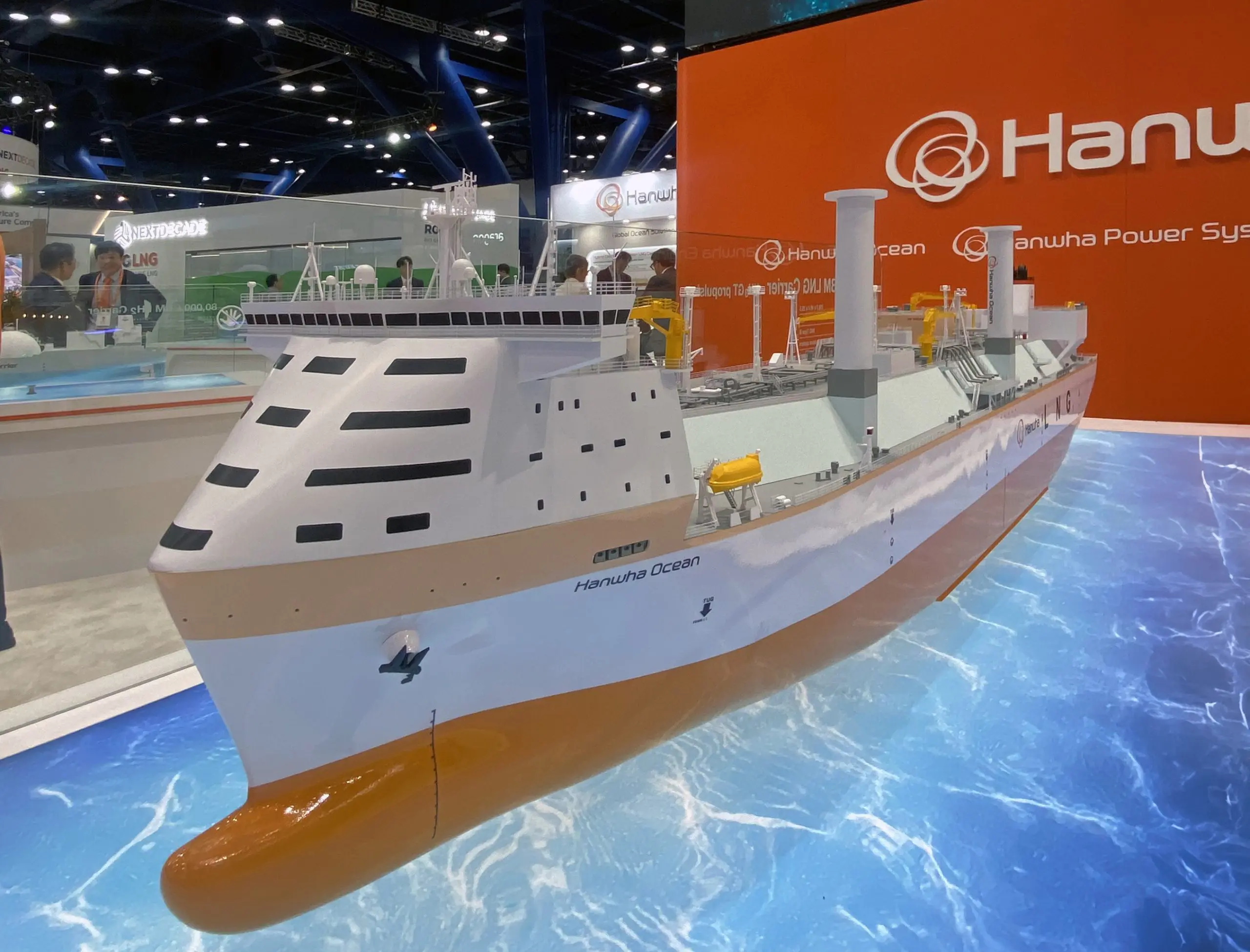Two units of South Korean conglomerate Hanwha have joined forces with US energy services firm Baker Hughes to design and produce ammonia turbines.
Hanwha Power Systems and Hanwha Ocean announced on Monday a joint development and collaboration agreement (JDCA) for a new small-size turbine for ammonia applications that will leverage Baker Hughes’ small-size gas turbine technology and Hanwha’s ammonia combustion system.
Baker Hughes said in a statement the new ammonia turbine will be suitable for marine applications but also for onshore and offshore applications, and for electric generation and mechanical drive.
Hanwha Ocean, one of South Korea’s leading shipbuilders, will be the main beneficiary of the JDCA and will adopt the new solution as a propulsion system for their future vessels.
Hanwha already tested a proof-of-concept of the combustor, with 100 percent ammonia as the fuel gas, and Baker Hughes completed its initial turbine feasibility studies in 2024.
According to Baker Hughes, the two companies target to complete the full engine test with ammonia by the end of 2027, after which the turbine (~16MW power range) will be commercially available for orders.
Ammonia-powered LNG carriers
Hanwha Power Systems said in a separate statement that Hanwha Group plans to complete the development of liquefied natural gas carriers and containerships using the ammonia turbine propulsion system by 2028.
In September 2023, Hanwha Power Systems and Hanwha Ocean obtained approval in principle (AIP) from the American Bureau of Shipping (ABS) to apply ammonia gas turbines to LNG carriers.
Hanwha Power Systems signed a memorandum of understanding (MOU) in September last year with Greek LNG shipping firm GasLog to convert the propulsion systems of its LNG carriers to an ammonia turbine.
During the same month, Hanwha Ocean unveiled what it says is a next-generation zero-emission LNG carrier.
The “Ocean 1″ LNG carrier is designed with an ammonia turbine-based electric propulsion system, enabling zero-emission operation without fossil fuels, Hanwha Ocean claims.

